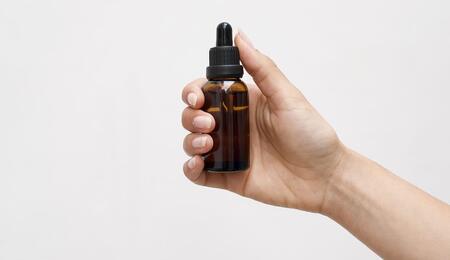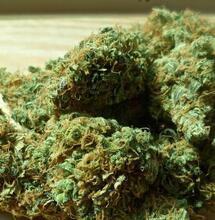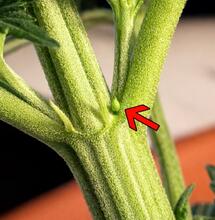CBD for Your Toothache: Does It Work?

CBD is explored as a pain medicine for various health concerns, one of them being dental pain. While it won’t magically cure your cavities, CBD can numb down moderate and severe dental pain, recent research suggests. Taking a drop of CBD oil before going to a plaque cleaning treatment? It just might save you from feeling the pain from the procedure.
Everybody will suffer from a toothache now and then. Whether it’s cavities or aching gum infection, new research shows that CBD can facilitate pain relief in the affected mouth area. Acute dental pain may be treated with CBD with the same or even better efficacy than opioids, Rutgers University researchers claim in a study. CBD treatments can deliver pain management results for both common dental ailments and post-operative procedures such as tooth extractions.
Can CBD Substitute Opioid Prescriptions for Dental Pain?
Dentists may prescribe to patients various over-the-counter, anti-inflammatory medicines such as acetaminophen, ibuprofen and naproxen, but not everyone tolerates these medications so well. Another issue is that these meds do not offer complete relief from dental pain, therefore patients may additionally be given opioids.
According to Associate professor Vanessa Chrepa at the Rutgers School of Dental Medicine, who led the recent study, dentists are interested in alternative options for opioids and want to avoid them amid rising levels of addiction and opioid-related death rates nationwide. “We studied cannabidiol or CBD because previous research from other specialties suggested that it might relieve dental pain without any psychoactive effects, which is really what everyone wants to find,” Dr. Chrepa said.
Research Confirmed CBD Offers Significant Pain Relief from Toothache
Sixty-one patients participated in the medical trial which assessed if CBD can successfully treat moderate and even severe types of toothache. Patients were divided into three groups where each group was given 10 mg of CBD, 20 mg of CBD, and placebo, respectively. After receiving a single dose of Cannabidiol, all patients were monitored for 3 hours.
The two groups exposed to CBD reported substantial reduction in pain. The peak of the pain relief effect was at about 180 minutes after CBD was administered, while the maximum median pain relief experienced by the study subjects was around 73 percent (at the 180-minute peak).
The research also indicates that larger doses of CBD were better, in terms of facilitating faster pain reduction. In addition, the group that got the larger dose had improvements in bite force, which is a crucial indicator whether all parts of the mouth involved in chewing work as needed.
How to Try CBD for Dental Problems?
While the Rutgers University study positively nods for CBD use in dentistry, it may take some time before CBD-based medications become widely available in dental practice. It will first require the approval of the FDA, before CBD can help the thousands of patients who wake up with acute toothache every day.
However, if you are already an experienced user and have CBD oil at home, nothing stops you from considering it before a visit to the dentist. For example, a drop of CBD can be ingested ahead of a plaque cleansing treatment - a procedure that is performed without an anesthetic and that it’s known to hurt. CBD is supposed to help you feel less pain as the dentist works to remove the sticky plaque from your teeth.
CBD can be taken following a dental treatment, such as root extraction or tooth removal, also to reduce pain. However, for these procedures, dentists are likely to prescribe antibiotics and anti-inflammatory medicines as well. CBD will not substitute the effects of prescription medicines, therefore it is important to follow the health advice and instructions as given by your dentist. Always consult your dentist for pain symptoms management or any other issues that you might be facing.
More from Soft Secrets:
















